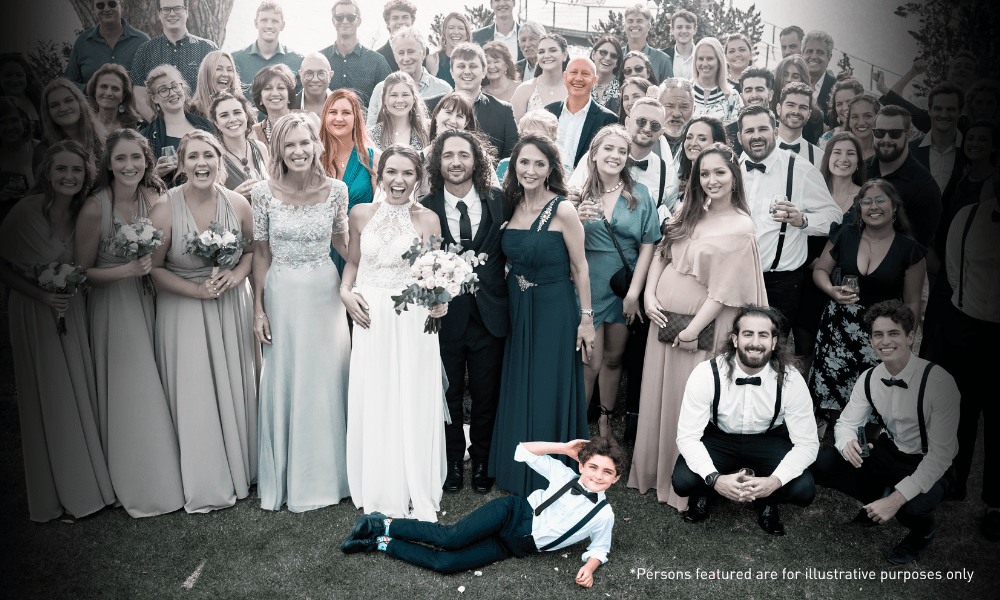1 in 45 Aussies are diagnosed with a brain injury…How many are missed?
Imagine you’re at a wedding party…
There are people, the music is loud, the lights are dimmed just right.
Laughter is all around you, and the couple’s first dance is about to begin. You’re surrounded by joy, celebration, and a group of people toasting to love. But somewhere in the room, maybe even beside you, someone is fighting a battle you can’t see.
They smile politely. But beneath the surface, the noise is overwhelming. The flashing lights are sending warning signals to their brain. The crowd’s constant movement feels like standing in the middle of a storm. Their head pounds, and they can’t quite focus. They try to follow the conversation, catching fragments but never the full picture. Fatigue sets in fast, like a fog creeping over everything. They know it will take days to recover from the party.
They’re doing everything they can to stay positive and be a part of the group. Other people around them are getting frustrated that they are withdrawing.
This is the reality for many people living with a brain injury. Often invisible. Frequently misunderstood. And affecting them in ways that are easy to miss, but impossible to ignore.
In a setting like a wedding that is filled with sensory overload, social expectation, and stimuli, a person with a brain injury may be pushed beyond their limits. But they won’t always tell you.
Because they’re used to being told they look fine.
Because explaining takes energy they don’t usually have.
Because they fear judgment, exclusion, or disbelief.

This experience is so common for many, sometimes they’re battling with a brain injury they don’t know they have, because brain injuries often go unidentified due to lack of understanding and screening, or misdiagnosed and confused with mental health issues.
Brain injuries don’t always come with physical signs. They can come with memory loss, sensory sensitivity, cognitive fatigue, anxiety, and a brain that just doesn’t process the world the same way anymore. The part that is difficult to explain, is that every brain injury is different and individual.
This Brain Injury Awareness Week, we’re asking everyone, whether you’re at a wedding, in a workplace, classroom, or queue, to approach others with empathy and compassion. You never know who is struggling quietly. You never know who’s using every ounce of their strength just to be there.
Small acts can make a world of difference.
Change doesn’t start with policies alone, it starts with people. People who are willing to see beyond appearances. To understand that “invisible” doesn’t mean “not real.” To make spaces safer, kinder, and more accessible.
Because while the celebration may last a few hours, the effects of a brain injury last a lifetime.
Let’s make sure no one feels invisible in moments meant to bring people together.

